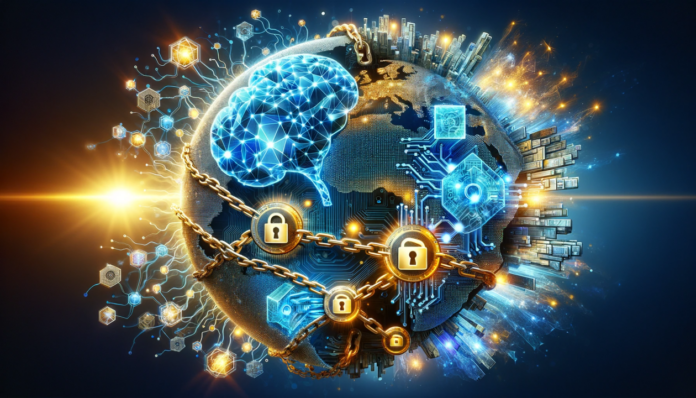Initially introduced as the backbone of Bitcoin, it has evolved far beyond its origins, promising a decentralized and transparent future for various industries.
While the benefits of blockchain are widely discussed, the ethical implications of its development and deployment are equally crucial but often overlooked.
This blog post delves into the ethical considerations in development, highlighting key areas such as privacy, security, inclusivity, environmental impact, and regulatory challenges. By understanding these ethical dimensions, developers and stakeholders can make more informed and responsible decisions.
Privacy and Data Security

One of the main attractions is its transparency, but this can also be a double-edged sword. Transactions are publicly accessible, which means that sensitive information, once recorded, cannot be altered or deleted.
While pseudonymity offers some level of privacy, it is not foolproof. Sophisticated data analysis techniques can de-anonymize users, exposing their private data and potentially leading to identity theft or financial loss.
Its decentralized nature provides a robust defense against traditional cybersecurity threats, such as hacking and data breaches. However, this does not make it impervious to all forms of attack. Smart contract vulnerabilities, for instance, can be exploited, leading to significant financial losses, as seen in the infamous DAO hack.
The ethical implications of privacy and data security extend beyond technical challenges. Developers must consider the broader societal impact of their designs. Ensuring that users have control over their data, providing clear and accessible information about how their data is used, and implementing robust security measures are fundamental ethical responsibilities.
Inclusivity and Accessibility
While blockchain can theoretically provide financial services to the unbanked and underbanked populations, practical implementation often falls short. Access to this technology requires internet connectivity, digital literacy, and often sophisticated hardware. In many parts of the world, these prerequisites are not met, exacerbating the digital divide rather than bridging it.
Innovators like Stefan Matthews are working to address these challenges. With a focus on making blockchain technology more accessible, Matthews advocates for solutions that lower the barriers to entry.
By developing simpler, more user-friendly interfaces and promoting digital literacy programs, efforts are being made to ensure that even those in remote or underprivileged areas can benefit from its potential.
This technology has the potential to empower marginalized groups, including women and economically disadvantaged individuals. However, current development and investment are predominantly male-dominated, potentially leading to the design of systems that do not fully consider the needs of diverse user groups.
The ethical responsibility to promote inclusivity and accessibility in blockchain development cannot be overstated. Developers must consciously design systems that are inclusive by default, considering the needs of all potential users. This involves not only technical design but also community engagement and collaboration with stakeholders from diverse backgrounds.
Environmental Impact

Proof-of-work blockchains rely on computational power to solve complex mathematical problems, securing the network through a decentralized consensus mechanism. However, this process is energy-intensive, with the Bitcoin network alone consuming more electricity than some small countries.
Addressing the environmental impact of blockchain requires a multifaceted approach. Beyond transitioning to less energy-intensive consensus mechanisms, developers can explore integrating renewable energy sources into blockchain infrastructure. Initiatives like green mining, where miners use renewable energy, are a step in the right direction.
The ethical implications of blockchain’s environmental impact extend to considerations of social responsibility. Developers and stakeholders must weigh the benefits of blockchain technology against its environmental costs, striving to minimize harm.
Engaging in transparent reporting of energy consumption and actively participating in sustainability initiatives are crucial steps. By prioritizing environmental considerations, the blockchain community can contribute to global efforts to combat climate change.
Regulatory and Legal Challenges
The global and decentralized nature of blockchain creates legal ambiguities, as different jurisdictions have varying regulations. For instance, while some countries embrace blockchain and cryptocurrencies, others impose strict regulations or outright bans.
This lack of regulatory consistency can hinder innovation and create uncertainties for developers and users. Navigating this complex legal landscape requires collaboration between developers, regulators, and policymakers to establish clear and consistent guidelines that protect users without stifling innovation.
Compliance and Governance

Ensuring compliance with existing laws and regulations is a significant challenge for blockchain projects. Anti-money laundering (AML) and know your customer (KYC) regulations, for example, are critical to prevent illegal activities but can be difficult to implement in a decentralized environment.
Establishing robust governance frameworks is essential to ensure accountability and transparency. This includes clear protocols for decision-making, dispute resolution, and community involvement. Ethical governance practices are crucial to building trust and legitimacy in the blockchain ecosystem.
Ethical Implications
The ethical implications of regulatory and legal challenges in blockchain are profound. Developers have a responsibility to ensure that their projects comply with legal standards and contribute to a fair and just regulatory environment.
Proactive engagement with regulators and policymakers can help shape regulations that balance innovation with protection. Ethical considerations also include respecting the sovereignty of different jurisdictions and ensuring that blockchain technology is used for lawful and beneficial purposes.
Social Impact and Ethical Considerations

It has the potential to provide financial services to underserved populations, offering a means to participate in the global economy. However, achieving this potential requires addressing barriers to access, such as lack of internet connectivity and digital literacy.
Ethical blockchain development involves creating solutions that are accessible to everyone, regardless of their socioeconomic status. This includes designing user-friendly applications and providing education and resources to help people understand and use blockchain technology effectively.
The social impact of blockchain extends to considerations of equity and justice. Developers have a responsibility to ensure that their projects contribute to a more equitable and just society.
This includes engaging with diverse communities, listening to their needs and concerns, and designing solutions that address their specific challenges. By prioritizing ethical considerations, developers can help ensure that blockchain technology fulfills its potential as a force for good.
Conclusion
The ethical considerations in blockchain development are complex and multifaceted, encompassing issues of privacy, security, inclusivity, environmental impact, and regulatory compliance. By addressing these challenges thoughtfully and proactively, developers and stakeholders can ensure that blockchain technology is used responsibly and for the greater good.
Ethical blockchain development is not just about avoiding harm; it is about actively contributing to a better, more equitable future. By prioritizing ethical considerations, the blockchain community can help realize the technology’s full potential as a transformative force for good in society.







